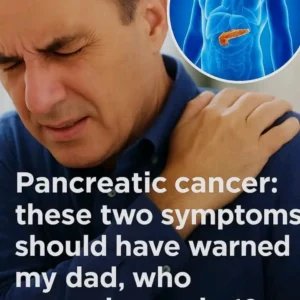Heart attacks remain one of the leading causes of death worldwide, but they rarely occur without warning. The body often provides subtle clues in the days, weeks, or even months leading up to a cardiac event. Recognizing these early warning signs can be lifesaving, allowing for timely medical intervention and lifestyle changes to prevent a potentially fatal outcome.
Recognizing the Warning Signs of a Heart Attack
1. Chest Discomfort: One of the most common warning signs is pressure, tightness, or pain in the chest. This sensation may last for several minutes or come and go intermittently. While some describe it as a squeezing or burning feeling, others may mistake it for heartburn. Any unexplained chest discomfort should be evaluated immediately, as it could indicate an impending heart attack.
2. Shortness of Breath: Experiencing difficulty breathing, especially without exertion, is a red flag. If you find yourself struggling to catch your breath while performing routine activities or while at rest, it could be a sign that the heart is not pumping efficiently.
3. Unusual Fatigue: Extreme tiredness that does not improve with rest can be an early indication of heart trouble. This symptom is particularly prevalent in women and may occur weeks before a heart attack. If you find yourself feeling exhausted despite a good night’s sleep, consult a healthcare provider.
4. Dizziness or Lightheadedness: When the heart fails to pump blood effectively, the brain may receive insufficient oxygen, leading to dizziness or fainting spells. If you experience frequent episodes of feeling lightheaded, especially when standing up or exerting yourself, it could be a warning sign of a heart condition.
5. Nausea or Indigestion: While stomach pain or discomfort is often associated with gastrointestinal issues, it can also signal heart trouble. Some people report feeling nauseous or experiencing indigestion before a heart attack, particularly women. Persistent nausea, vomiting, or bloating should not be ignored.
6. Pain Radiating to Other Areas: Discomfort that spreads beyond the chest—such as to the arms, back, neck, jaw, or stomach—may indicate a heart attack. The pain can be sharp or dull and is sometimes mistaken for muscle strain or dental issues. Pay attention to any unexplained or persistent pain in these areas.
7. Cold Sweats: Sudden, unexplained sweating without physical exertion can be a sign of heart trouble. If you experience cold sweats along with other symptoms, seek medical help immediately.
What to Do If You Notice These Symptoms
If you or someone you know exhibits any of these warning signs, act quickly. Delaying medical attention can increase the risk of severe complications or death. Call emergency services immediately if chest pain persists for more than a few minutes, especially if it is accompanied by other symptoms such as shortness of breath, dizziness, or pain radiating to the arms or jaw.
Preventing Heart Disease
While some risk factors for heart disease, such as genetics, cannot be controlled, many can be managed through lifestyle choices. Consider adopting the following habits to protect your heart health:
- Maintain a Heart-Healthy Diet: Consume a balanced diet rich in fruits, vegetables, whole grains, and lean proteins while minimizing processed foods, saturated fats, and excessive sodium.
- Engage in Regular Exercise: Aim for at least 150 minutes of moderate-intensity aerobic activity per week, such as brisk walking, swimming, or cycling.
- Manage Stress: Chronic stress can contribute to heart disease. Practice relaxation techniques such as meditation, deep breathing, or yoga.
- Avoid Smoking and Excessive Alcohol Consumption: Smoking damages blood vessels and raises the risk of heart disease. Similarly, excessive alcohol intake can contribute to high blood pressure and other cardiovascular issues.
- Monitor Blood Pressure and Cholesterol Levels: High blood pressure and cholesterol increase the risk of heart attacks. Regular health check-ups can help detect and manage these risk factors early.
Conclusion
Heart attacks can be deadly, but recognizing the warning signs and seeking immediate medical attention can save lives. By understanding these symptoms and making proactive lifestyle changes, you can significantly reduce the risk of heart disease and lead a healthier, longer life. Stay informed, listen to your body, and prioritize heart health.




